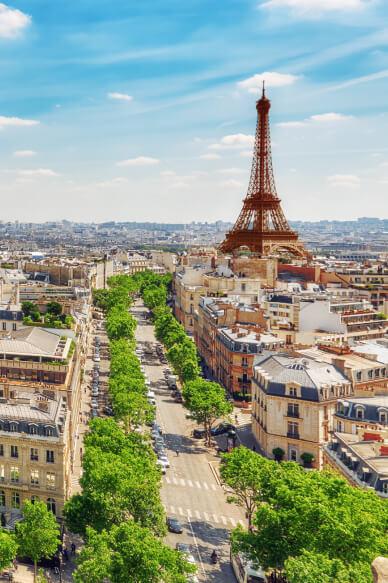Car rental in France
With 80 million people visiting each year, France is the most popular travel destination in the world. Among the most colorful nations in Europe is France, rich in both history and culture. Paris, the world's capital of romance, art and history, is located in the middle of it.
Renting a car is the most practical way to explore this stunning nation. to savor the stormy Brittany coast, the verdant plains of the Val de Loire and the glamour of the Riviera. For those who enjoy skiing, France is the perfect place to visit in the winter.
France is the location for you if you're picturing a warm evening with a glass of champagne in an elegant restaurant or strolling arm in arm through Paris' stunning boulevards with your loved ones.
Ofran works with several car rental agencies in France such as Europcar, Alamo, Budget, and Enterprise. Our partners have numerous offices spread across the nation's airports, big cities, and small towns. Our presence enables our clients to plan ahead and make the most suitable travel and visit arrangements.
France's ideal location in western Europe, makes it a great gateway for traveling to Belgium, Italy, Spain and Germany. Renting in Geneva's airport French terminal is usually cheaper than on the Swiss terminal.
Advantages of booking a car rental in the France with Ofran:
◾ A wide selection of vehicles for rent in a variety of sizes. From mini-category cars suitable for a short trip with little equipment, to family vehicles, SUVs, station wagons, minivans, and luxury cars.
◾A wide distribution of stations in France, at the main airports, in city centers, and at selected tourist sites.
◾Peace of mind and security that come with the insurance coverage and the award-winning service of a leading company in the industry - offering rental plans that include waiver of deductible and extended third-party insurance.
Renting a car in France is the most recommended option for traveling. In most countries, the roads are very advanced and comfortable for driving.
